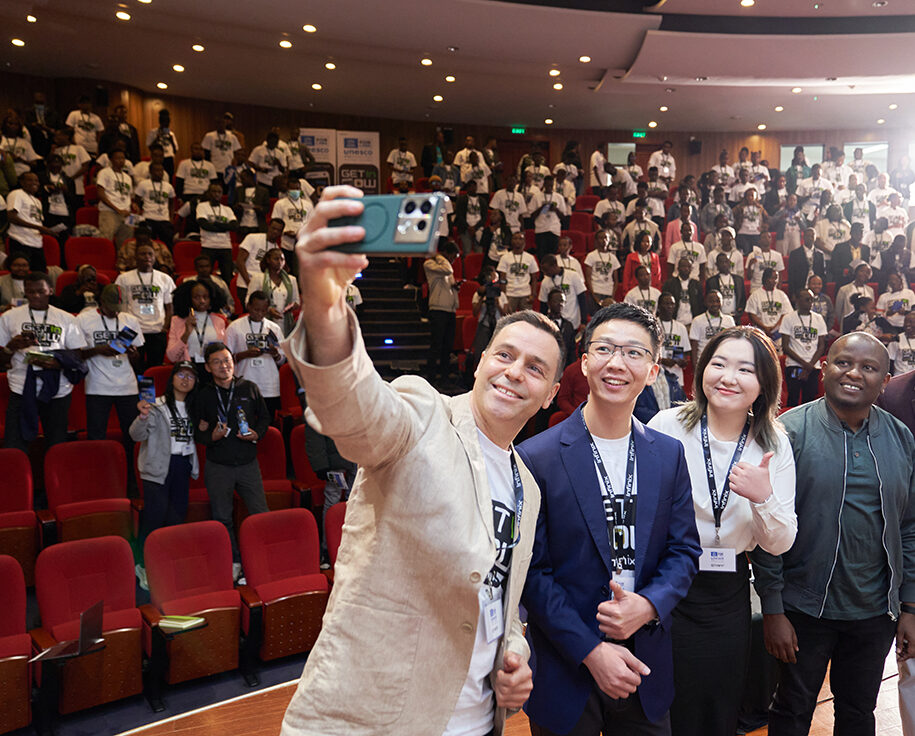advertisement
How Coglabs Is Transforming Education With AI

Joan Nadal’s ingenious idea to repurpose old smartphones into educational robots captivated the interest of UNESCO, Google, and Infinix. It created a powerful alliance, making advanced technology accessible to young learners. Through the power of innovation and collaboration, her initiative is overcoming challenges and unlocking new opportunities.
Nadal, the Master Trainer of UNESCO at STEM Education, gave an inspiring account of the origins of CogLabs, starting with nothing but a 3D printer, carbon and a smartphone that had seen better days to create a robot. “When I finished the robot, I made a toy for my daughter. I wanted to show it to the world. Because I learned from the community, I give back to the community.” Nadal said.
In a workshop event held at The University of Nairobi, they partnered with Infinix, Google and UNESCO to inspire youth through robotics and AI education. Themed Get in Now, the goal of this project is to provide accessible, practical experiences in robotics, machine learning, and artificial intelligence education to the next generation of African thinkers and creators.
advertisement
Seeing the potential for meaningful impact, UNESCO sought to elevate Joan’s project. They envisioned a solution that was at once affordable and scalable, aiming to make robotics and AI education accessible to all students for STEM education, regardless of their economic background.
UNESCO, Infinix, and Google each brought unique strengths to the table. UNESCO’s role was to ensure that the educational content was effective and relevant; Google contributed its advanced AI technologies, and Infinix provided the hardware—recycled smartphones that would serve as the brains of the educational robots. This collaboration aimed to address the continent’s STEM education challenges and provide students with hands-on learning experiences. The partnership begat CogLabs, a place where teachers and students can build strong knowledge on AI tech. Now, more than 600 teachers have benefitted from the capacity-building workshops. More than 10,000 schoolchildren have been introduced to AI, Robotics, 3D printing and micro science.
“This partnership is a true honour,” said Michael Zeng, Brand Manager, Infinix Kenya. “This project is designed to build capacity in crucial domains such as robotics, machine learning, and AI, with a focus on education equality, to transform knowledge into resilient ownership and foster sustainable development.”
advertisement
According to the Situational Analysis Survey on Play-Based STEM Education at the Basic Learning Level in Africa, the challenges identified in achieving quality STEM education indicated that African countries have inadequate resources and facilities to support STEM education; poor teacher pedagogical practices with an inadequate number of teachers of STEM; and general lack of interest in STEM subjects among students.
The study recommended that STEM education and curriculum design should be a priority in terms of review or reform, giving students the relevant skills that prepare them for employment and ready to meet the current labour demand. This is because one in every three people in Africa are living in poverty and the youth dividend contributes to about 42 per cent of the population. The continent has a rapid growth rate with currently, around 11 million youth joining the labor market annually.
During the workshop, students engaged in exciting activities such as building their robots by assembling 3D parts and repurposing old Infinix smartphones. This innovative approach breathed new life into the devices, enabling the students to train the robots to recognise surrounding objects and respond accordingly by moving around. Through this process, the participants gained valuable insights into the realms of coding, machine learning, and AI recognition processes.
advertisement
“We are thrilled to preview the mobile application of the CogLabs initiative,” shared John Kimani, Head of Developer Relations, Sub-Saharan Africa, Google. “Google’s emphasis on promoting digital literacy and making learning accessible to all aligns perfectly with the CogLabs mission. This mobile application will empower everyone to explore the world of machine learning and programming, without the need for a laptop, ensuring equal opportunities for all to create their own robotic wonders, wherever they may be.”
The event also previewed the CogLabs mobile app, an innovative tool that extends the reach of the initiative. The app allows students to explore AI and robotics without needing a laptop, making these educational resources more accessible to those who might not have access to advanced technology. Infinix plans to extend CogLabs workshops to other African countries, bringing the same hands-on learning experiences to more students. Kimani noted that “Google’s emphasis on promoting digital literacy and making learning accessible to all aligns perfectly with the CogLabs mission. This mobile application will empower everyone to explore the world of machine learning and programming, without the need for a laptop.” Zeng says it best. “We firmly believe that every young mind possesses unlimited potential, and we believe that advanced technologies, such as AI, will open the doors to a brighter future for all.”
This article was first published in CIO Africa Magazine August 2024.